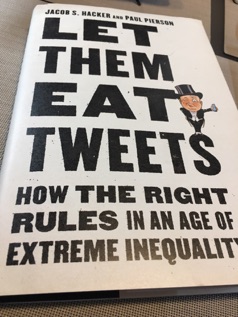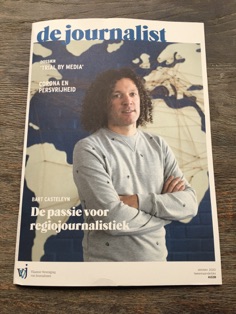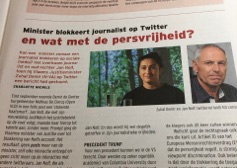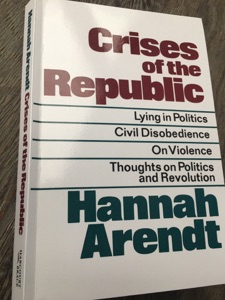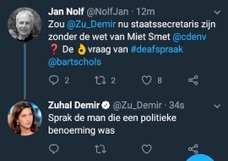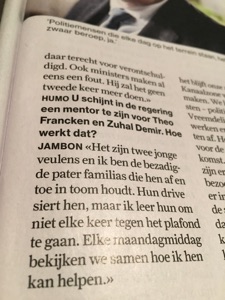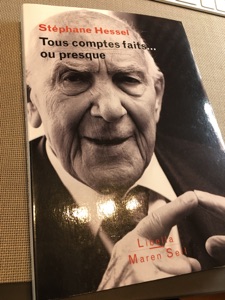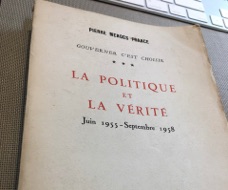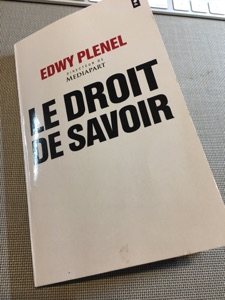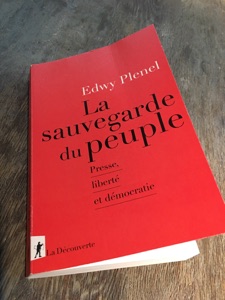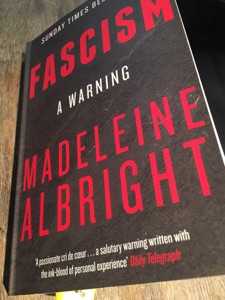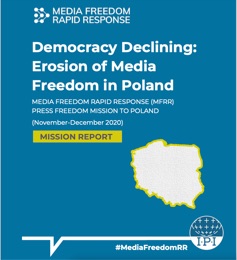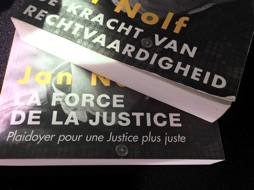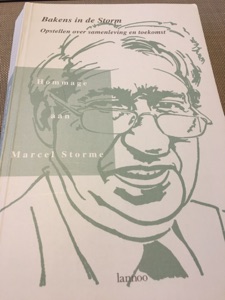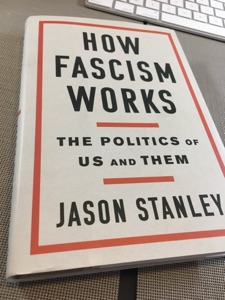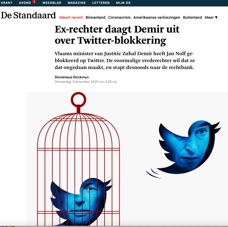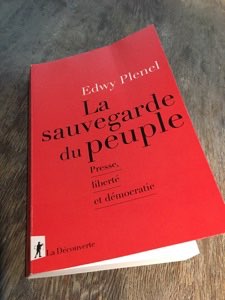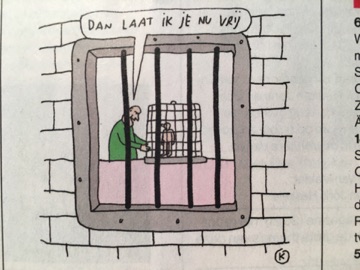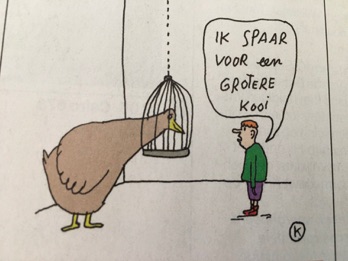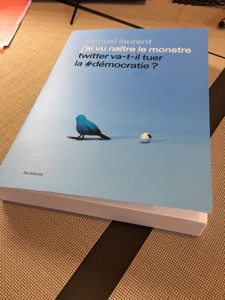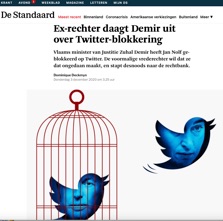QUESTIONING JUSTICE
2020/21

Politicians blocking journalists on Twitter: the state of play in the US, France and Belgium on this #WorldPressFreedomDay (*)
Officially, we live in peacetime, but for news gathering and opinion forming, we are in the middle of a digital battlefield. The speed, mass distribution and interactivity of social media are producing more fake news than ever before and igniting debates much faster. The political world is using social media as a convenient marketing tool, but even the most powerful of them face two limitations: the power of the citizen and the omnipotence of social media moguls. Recent foreign legal precedents offer some interesting insights.
Trump and Twitter: a legal sandwich
Donald Trump's presidency was barely six months old when the Knight First Amendment Institute at Columbia University (NY) initiated a lawsuit against him. Originally, seven citizens blocked by @realDonaldTrump. They won their case both at trial and on appeal. Immediately after the trial court ruling, Trump unblocked them, so their information gathering and expression through this Twitter interaction was restored. But in mid-2020, Trump appealed to the U.S. Supreme Court against the verdict, where the case dragged on for 14 sessions.
It was convenient for Trump, because the day before Jo Biden was sworn in, the Justice Department was able to tease that ... Trump was no longer president. After all, the unblocking had been ordered by the courts because the @realDonaldTrump Twitter account was operating as a real government account. For Trump, on balance, this was a bit of legal luck in his political accident.
Meanwhile, Twitter had permanently deleted Trump's account since January 8, by the way, this in the wake of the Capitol storming. This left the now ex-president in a legal sandwich.
The Supreme Court finally limited its decision to four lines and sent the case back to the New York Court of Appeals on April 5 with the order to leave the case 'undetermined' ('moot' in US technical language). As a result, the Court of Appeals' decision does not have the technical value of a legal precedent.
Justice Clarence Thomas (nominated in 1991 by George Bush and husband of Virginia Lamp, a conservative lobbyist, associated with The Heritage Foundation and also Trump and Tea Party supporter) wove a long and very personal 'supporting opinion' on this short Supreme Court decision - foremost on the supremacy of Twitter itself vis-à-vis the president - but none of his colleagues signed it.
We'll return to his opinion in another article, because while it reflects some relevant thoughts, the (very) conservative judge is not overly concerned about the citizen (see his positions on abortion, torture...).
The Knight First Amendment Institute is nonetheless pleased - and rightly so. According to the institute, the jurisprudence on unblocking has indeed spread everywhere, and thus helps to fight government censorship. For example, proceedings against Democratic Congresswoman Ocasio-Cortez (AOC) and Chicago Mayor Lori Lightfoot did not have to be pursued: finally both voluntarily unblocked critical Twitter users from their accounts.
In their blog of April 7, 2021, Jameel Jaffer, Executive Director and Katie Fallow, senior staff attorney of the Knight First Amendment Institute wrote with good reason: “Official censorship should have no place in the digital public square” (link to their blog here).
Meanwhile, on April 8, 2021, the Knight First Amendment Institute, along with the American Civil Liberties Union of Texas, filed a new lawsuit, this time against Attorney General Ken Paxton for blocking nine critical Twitter users, including a journalist and an attorney.
To be continued!
Catch-up for a French investigating judge
Remarkable news from Paris. Both the public prosecutor and the investigating judge had rejected a criminal complaint of political discrimination against journalist (and left-wing politician) Guillaume Tatu - blocked on Twitter by Richard Ferrand, president of the French Assembly.
The Paris Court of Appeal, however, took the case seriously and on March 11 ordered a thorough investigation based on carefully described criteria. For investigative journalism, this is a fascinating case. The reason for the block was Tatu's tweets about the alleged conflict of interest of the president of the French parliament. This case, published by the Canard Enchaîné, is supposed to be time-barred in the meantime, but the anti-corruption association Anticor appealed to the Supreme Court on April 12.
And here in Belgium?
Here too, some politicians block journalists on Twitter. And again, this is an authoritarian strategy of "viewpoint discrimination", to the detriment of journalists who are thus cut off from a direct source of information.
Personally, I have been blocked on Twitter by the Flemish Minister of Justice, Zuhal Demir, since September 28, 2020. However, after repeated interventions by the VVJ (the Flemish Association of Journalists @vvjournalisten ) this blocking was lifted amicably on February 25, 2021.
It is now time to list the blocking practices of politicians on social media, analyze them and hold them accountable in case of abuse.
The French and American cases are an excellent source of inspiration, but also Belgian citizens and journalists are not without protection from the Belgian and Flemish legislation against this ugly Twitter trend of the political world either.
To be continued and if necessary … prosecuted !
Twitter @nolfjan #justitiewatcher
(*) This contribution was published in Dutch in the magazine "De Journalist" of the Flemish Association of Journalists (VVJ) @vvjournalisten nr 231 of April 2021 and has been updated here in the US chapter on the occasion of World Press Freedom Day #WorldPressFreedomDay this May 3rd.
Lisez ce blog en français sur Mediapart par le lien ici.
Lees deze blog in het Nederlands, via deze link naar de VVJ hier.
Check my complete page on Free Speech and Free Press on this link here.
EPILOGUE
On the day Flemish minister of Justice Zuhal Demir unblocked me, I discovered in the weekly Humo this fantastic, fitting cartoon of Belgian artist Luc Zeebroek, knows as Kamargurka (Twitter @LucZeebroek ).
You will find his work on his website kamagurka.com but by courtesy of his amical permission, I let you enjoy this one here below, and add a second one.
The text of the first in Dutch is: “Then I let you free for now”....
The text of the second is food for thought on this World Press Freedom Day: I’am saving money to buy you a bigger cage...
world press freedom day
3 mei 2021
‘It is now time to list the blocking practices of politicians on social media, analyze them and hold them accountable in case of abuse.’
(and enjoy the cartoons of Kamargurka on his website kamagurka.com also below !)
